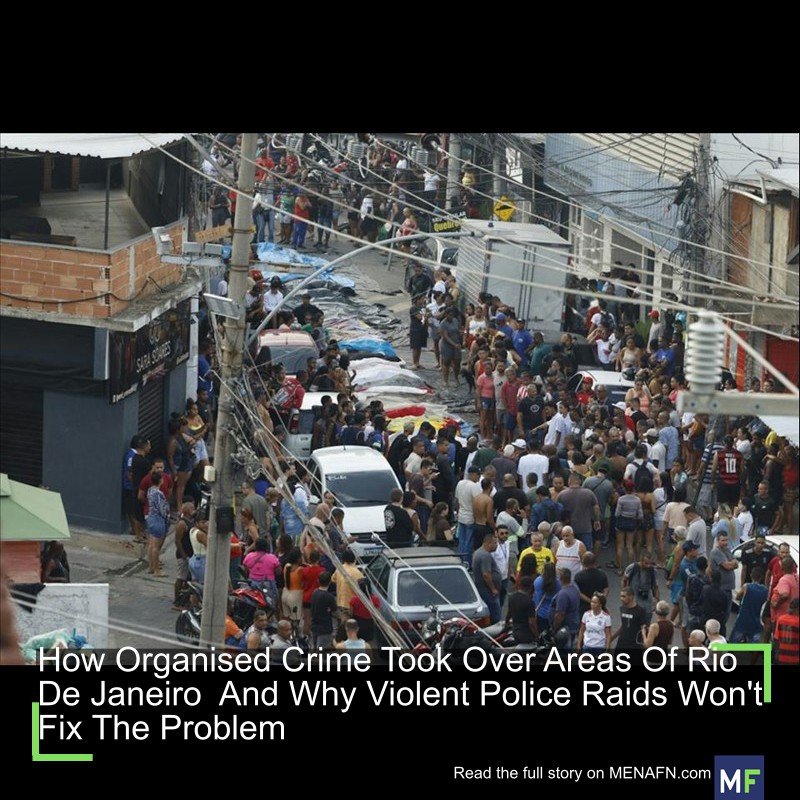
How Organised Crime Took Over Areas Of Rio De Janeiro And Why Violent Police Raids Won't Fix The Problem
In the days that followed, as graphic images showed lines of bodies on the streets, it emerged that at least 115 civilians and four police officers had been killed, making it the most violent police operation in Brazilian history.
A poll carried out two days after the raid indicated that 62% of Rio residents supported the raid – rising to 88% in the favelas. But there were also protests against alleged extrajudicial killings and condemnation by the UN and other human rights organisations.
The violent operation overshadowed the start of the Cop30 climate summit in Belem on the edge of the Amazon. At a press conference upon his arrival in Belem, Brazil's President Luiz Inácio Lula da Silva, who was not aware of the operation beforehand, condemned the raid as“diastrous” and a“mass killing”.
In this episode of The Conversation Weekly podcast, we speak to Robert Muggah, founder of the Institute Igarapé and a research collaborator at the Brazil LAB at Princeton University, about how organised crime become so deeply embedded in Brazil – and if there's a better way to confront it.
The origins of the Red Command lie in Brazilian prisons during the years of Brazil's military dictatorship in the 1970s.“ The authorities at the time often would crowd common criminals together with left-wing political prisoners in the same jails,” explains Muggah.“ You had this almost metastasis happening between these different inmates and... an alliance emerged from these two groups called the falange vermelha, which means the red phalanx.”
Incubated in the prison system, the gang moved out in the street, shedding its left-wing ties as the dictatorship ended.“By the 1980s, you have a fairly well-organised group which is diversifying its income streams from what was typically bank robberies or targeted raids, to the cocaine economy,” Muggah says.
Today, the Red Command has expanded out of Rio and is present across Brazil and in neighbouring countries.“What you've seen over the past decade in particular is the penetration of organized crime, not into just new geographic areas, but entirely new sectors of the economy,” says Muggah.
Listen to the interview with Robert Muggah on The Conversation Weekly podcast, and read an article he wrote in Portuguese on the October 28 operation against the Red Command.
This episode of The Conversation Weekly was written and produced by Katie Flood, Mend Mariwany and Gemma Ware. Mixing by Eleanor Brezzi and theme music by Neeta Sarl.
Newsclips from AlJazeera English, Guardian News, DRM News, Itatiaia Patrulha, AFP Portuguese, Cross World News and NewsX World.
Listen to The Conversation Weekly via any of the apps listed above, download it directly via our RSS feed or find out how else to listen here. A transcript of this episode is available on Apple Podcasts or Spotify.

Legal Disclaimer:
MENAFN provides the
information “as is” without warranty of any kind. We do not accept
any responsibility or liability for the accuracy, content, images,
videos, licenses, completeness, legality, or reliability of the information
contained in this article. If you have any complaints or copyright
issues related to this article, kindly contact the provider above.


















Comments
No comment